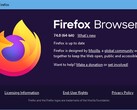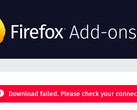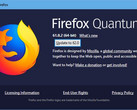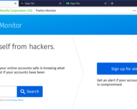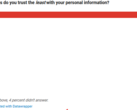Facebook has become a bit of an easy target these days, but with good reason. First, it kicked off with the Cambridge Analytica scandal, where it was found that private data from around 50 million Facebook users had been acquired by research firm Cambridge Analytica and then illegally transferred to other firms for use in target political advertising. Whistleblower Christopher Wylie alleges that the data collected allowed for the swaying of large swathes of voters in both the US and the UK since 2016. Next, it came to light that Facebook had been tracking call and text data from Android users for years via inherited app permissions, with many users able to find call data, names of contacts, and other private information in their data on Facebook's servers. With all the negative attention on the big blue advertising company, Firefox has cleverly rolled out an official extension designed to stop Facebook from tracking the browsing habits of its users.
The extension, dubbed "Facebook Container Extension", is based on Mozilla's Multi-Account Containers extension. Facebook (and essentially any other site that offers you services for "free") tracks users with cookies. If you ever wondered why Facebook tries to make it easy to log into multiple services with a Facebook account, it's so they can track your habits more thoroughly and accrue more valuable data. The Facebook Container Extension makes it much more difficult for the company to track you by effectively isolating the social network in its own browser sandbox. Using the extension means that Facebook will be cut off from its tracking cookies, but Mozilla also notes that if you use your Facebook credentials to log into other websites or access comment threads on news articles, these features will not work properly with the extension enabled, either (though this is by design). Naturally, Mozilla promises that the extension does not pass any data collected onward — only the number of times the extension has been installed or uninstalled from the browser.
If you are going to use Facebook, this extension does seem like a smart idea. Still, though, it's important to be aware that while not using Facebook is a good start, your private information is still being collected by numerous analytic services. Research by Adguard details that roughly 40% of mobile apps collect and send data to Facebook via something called the "Facebook Audience Network", which does not require the target to even have an account on the site. And that's not even to mention the Google analytics services, which are altogether more than twice as prevalent as the Facebook Audience Network. While the #deletefacebook campaign (ironically something directly from yet another social network) has momentarily brought the issue of big data and privacy into the spotlight, it's up to consumers (and products!) like us to take our own privacy seriously and hold those who violate it accountable.
Previous article
Huawei Y7 Prime 2018 official specs releasedNext article
Nvidia DGX-2 is the "world's largest GPU"> Expert Reviews and News on Laptops, Smartphones and Tech Innovations > News > News Archive > Newsarchive 2018 03 > Official Firefox extension makes it harder for Facebook to track you
Douglas Black, 2018-03-28 (Update: 2026-02-18)



